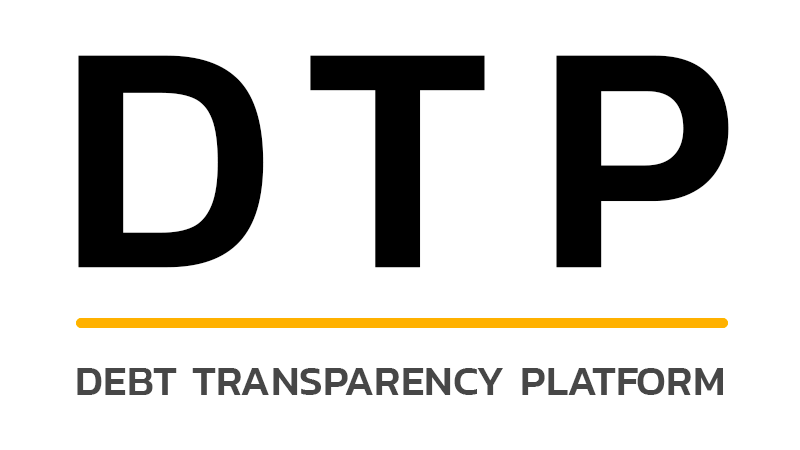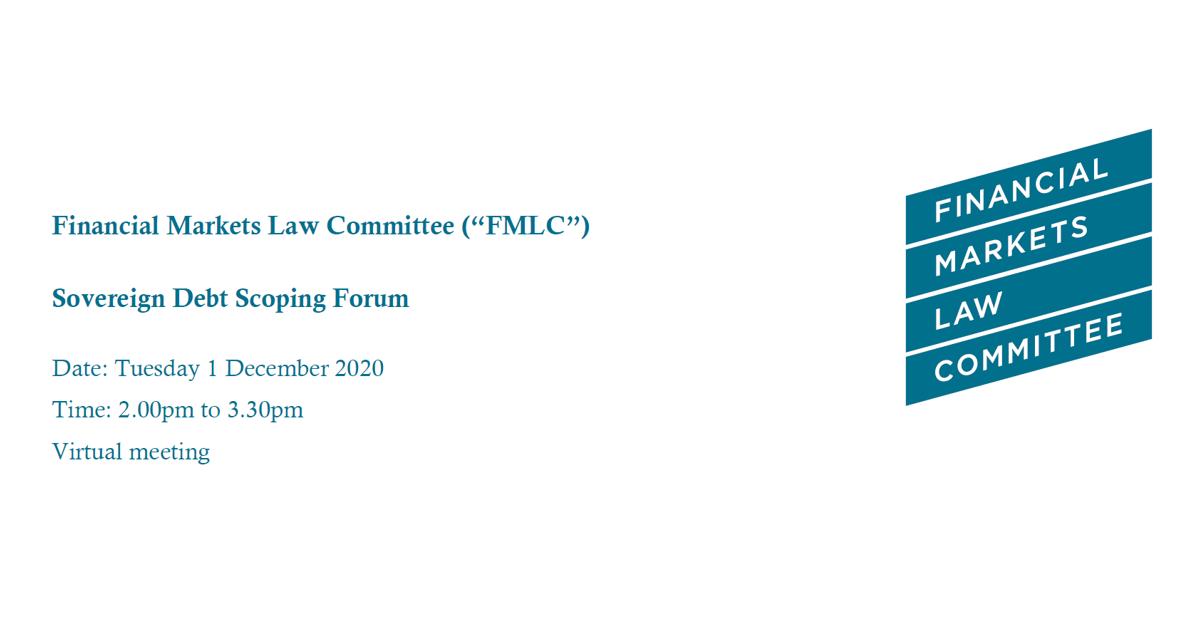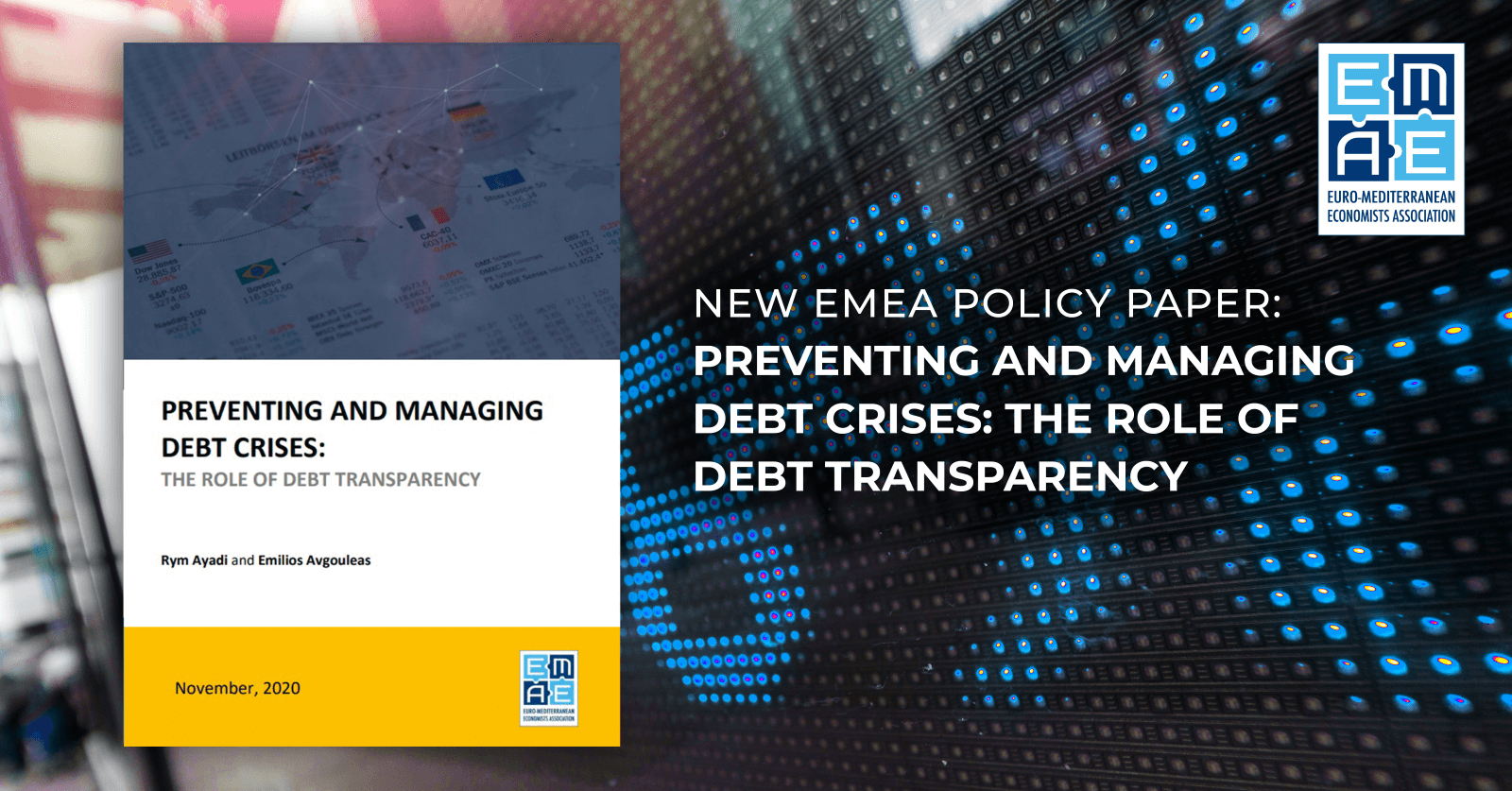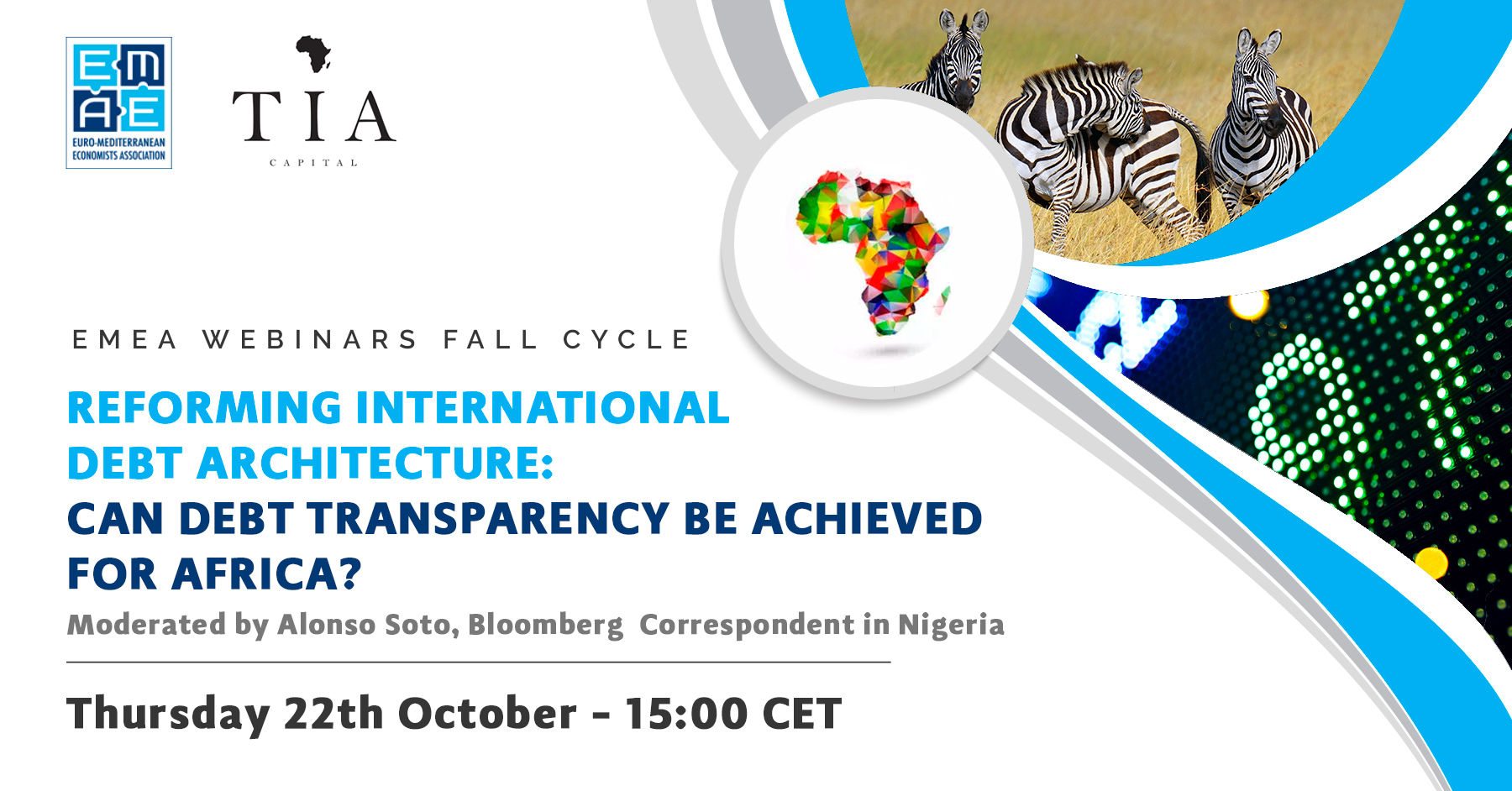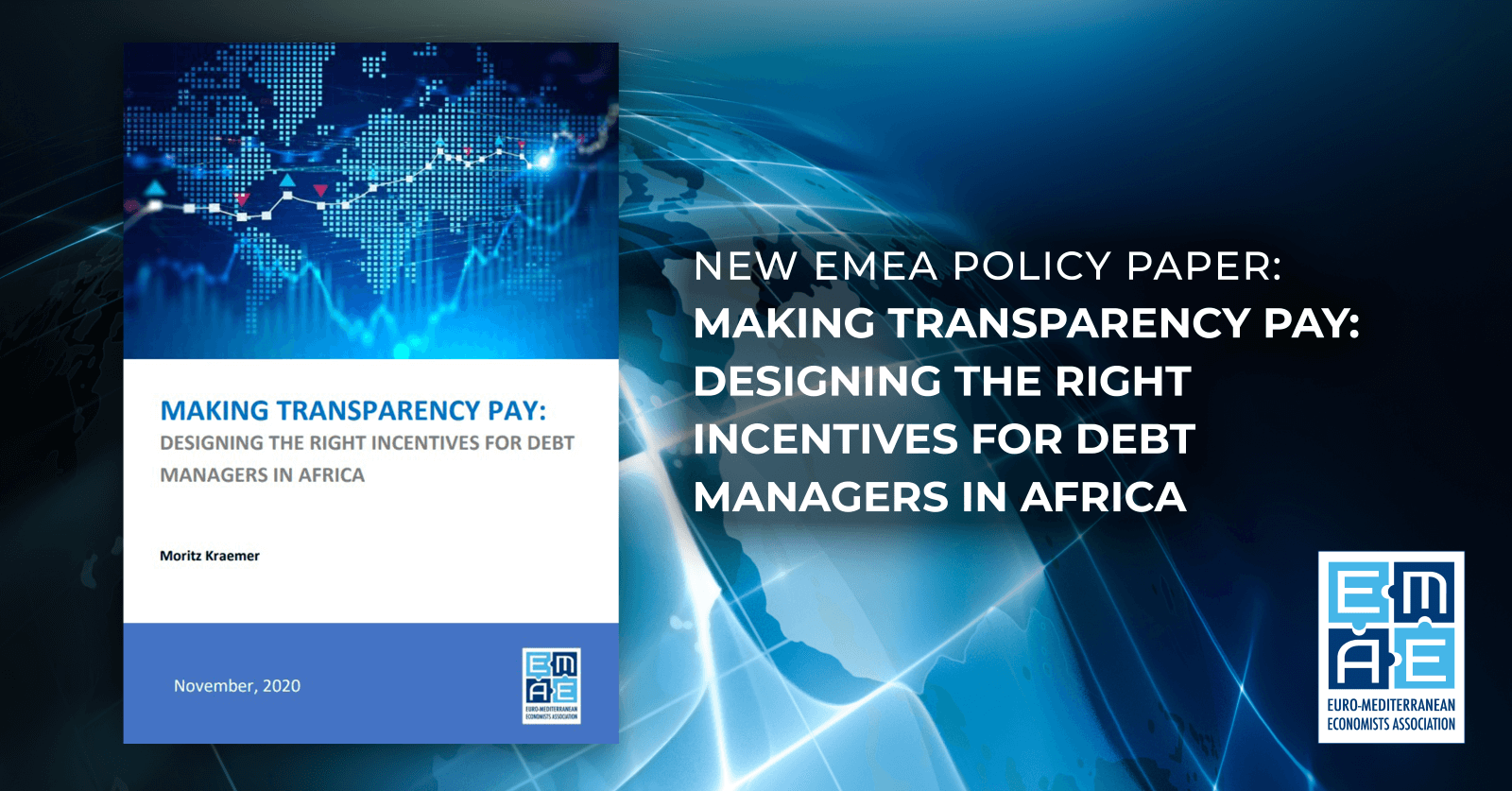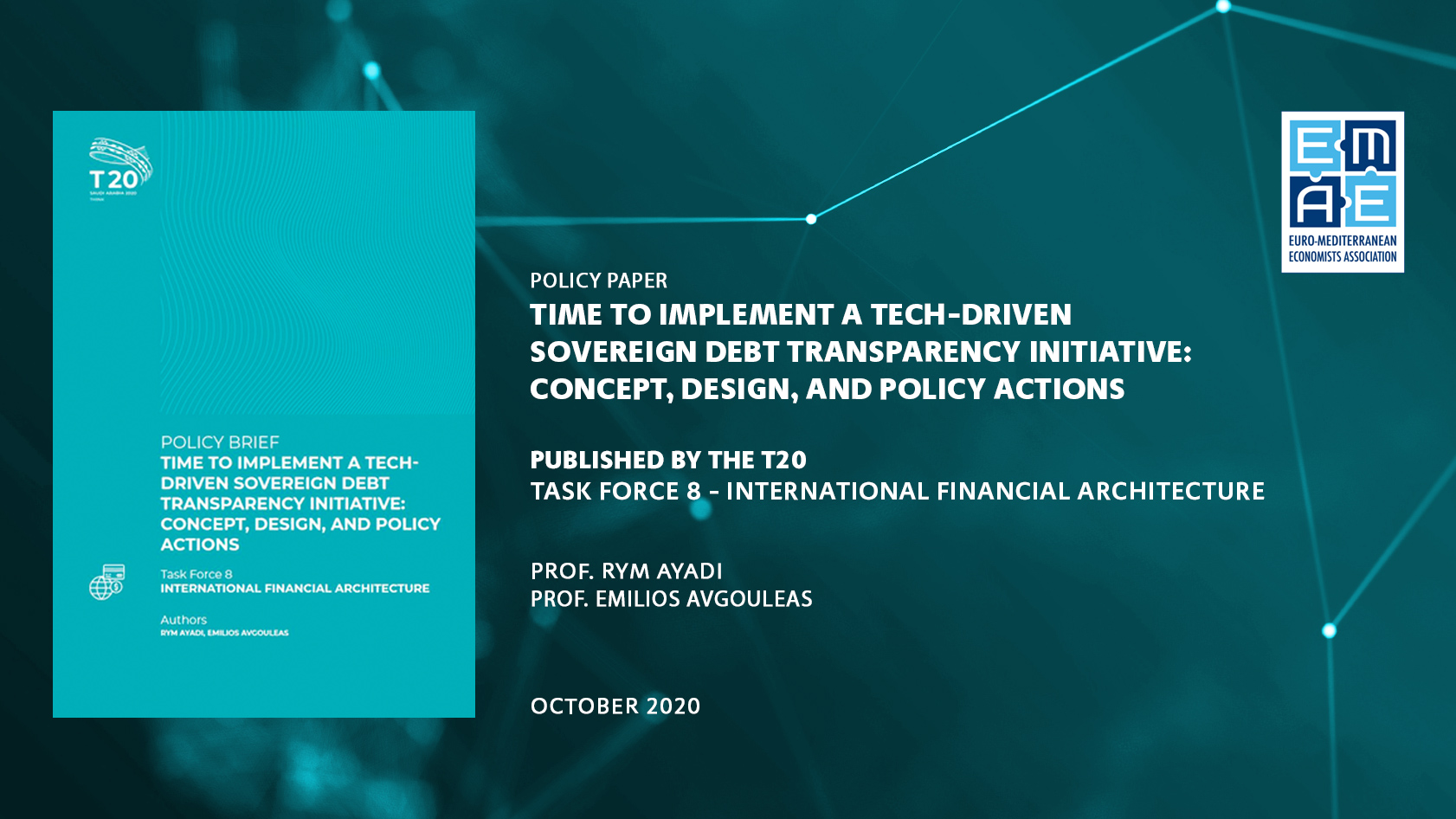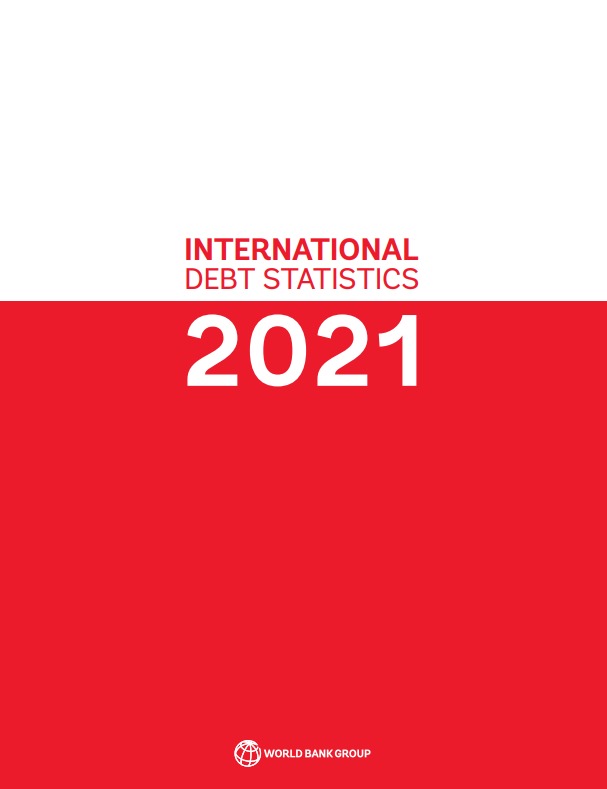EMEA participation at the Sovereign Debt meeting of the Financial Markets Law Committee (FMLC)
Prof. Rym Ayadi, Professor at The Business School (formerly Cass) and President of EMEA, and Prof. Emilios Avgouleas, Chair International Banking Law and Finance, University of Edinburgh, member of the Sovereign Debt Group of FMLC, and member of EMEA Advisory Board, were invited at the Sovereign Debt Scoping Forum of the Financial Markets Law Committee…
Preventing and Managing Debt Crises: The Role of Debt Transparency
Amidst calls for debt relief to mitigate the socioeconomic consequences of COVID-19 in Africa, debt transparency has become an even more pressing issue, in view of the recent wave of debt suspensions under the Debt Service Suspension Initiative (DSSI) and calls for Private Sector Involvement (PSI). This paper assesses the key risks stemming from debt…
EMEA webinar report: “Reforming International Debt Architecture: Can Debt Transparency Be Achieved for Africa” – 22 October 2020
The focus of the webinar was to discuss the role of debt transparency in reforming the international debt architecture. The discussion was Africa specific and tackled issues such as sovereign defaults and debt relief measures, the role of the international organisations (e.g. IMF and the EU), the private sector and the potential path towards debt…
New EMEA policy paper – Making Transparency Pay: Designing the Right Incentives for Debt Managers in Africa
This policy paper proposes the introduction of a variable remuneration component for debt managers in Sub-Saharan Africa and other less developed countries characterised by relatively underdeveloped institutional capacity and governance standards. The aim is to improve debt management outcomes and public debt transparency by aligning the interests of decision makers with those of the public.…
Time to Implement a Tech-Driven Sovereign Debt Transparency Initiative: Concept, Design, and Policy Actions
Amidst calls for debt relief to mitigate the socioeconomic consequences of COVID-19 in Africa, debt transparency has become an even more pressing issue. This paper assesses the key debt transparency initiatives promoted by international organizations and the private sector, given the June 2019 G20 Communiqué on the importance of improving debt transparency for debt sustainability.…
G20 Finance Ministers & Central Bank Governors Meeting – 14 October 2020 [Virtual]
While the global economy is experiencing a sharp contraction in 2020 due to the impactof the COVID-19 pandemic, the outlook is less negative with global economic activityshowing signs of recovery as our economies have been gradually reopening and thepositive impacts of our significant policy actions started to materialize. However, therecovery is uneven, highly uncertain and…
International Debt Statistics 2021
International Debt Statistics (IDS) is a longstanding annual publication of the World Bank featuring external debt statistics and analysis for the 120 low- and middle-income countries that report to the World Bank Debt Reporting System (DRS). The content coverage of IDS 2021 includes: 1) a user guide describing the IDS tables and content, definitions and…
Reform of the International Debt Architecture is Urgently Needed
The COVID-19 pandemic has pushed debt levels to new heights. Compared to end-2019, average 2021 debt ratios are projected to rise by 20 percent of GDP in advanced economies, 10 percent of GDP in emerging market economies, and about 7 percent in low-income-countries. These increases come on top of debt levels that were already historically high.…
Voluntary Principles For Debt Transparency
Amid growing concern about the implications of rising global debt levels, policymakers and private sector leaders alike have been in search of ways to support debt sustainability. With encouragement from official sector collaborators and a clear mandate from the Board of Directors of the Institute of International Finance (IIF), this set of Voluntary Principles for…
